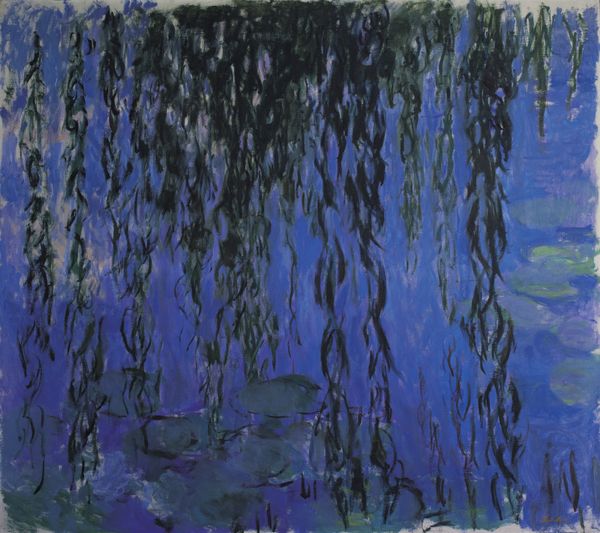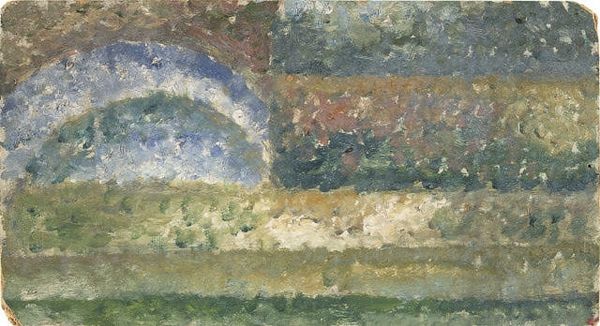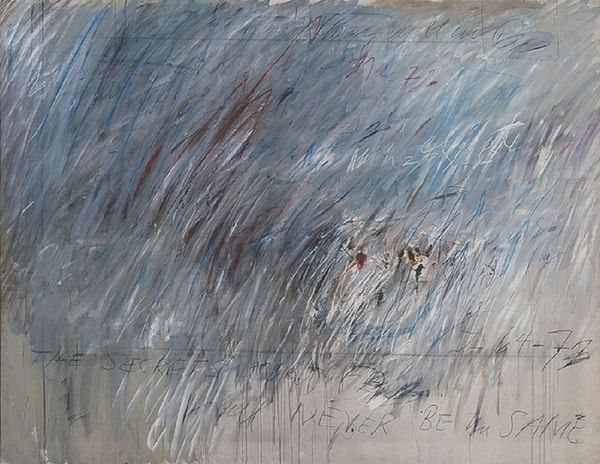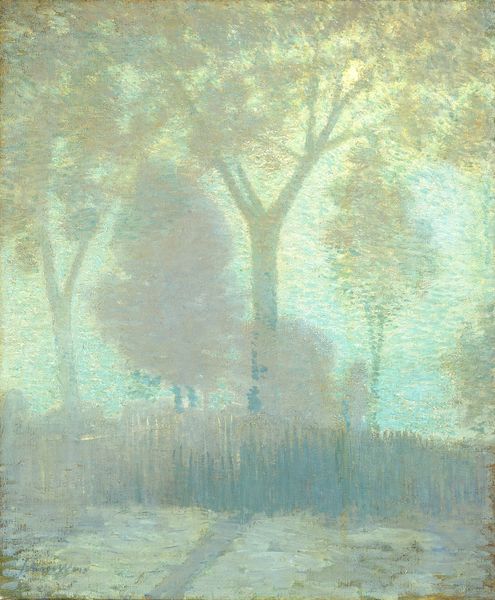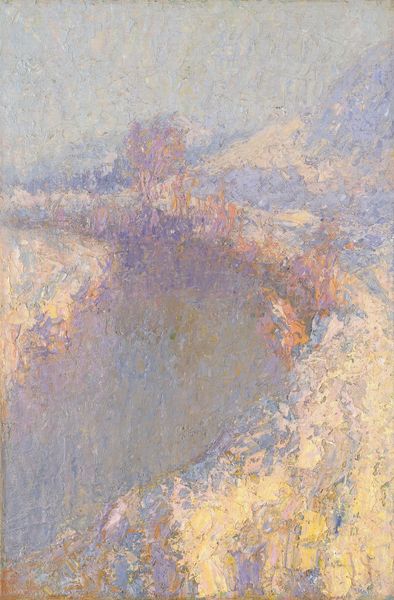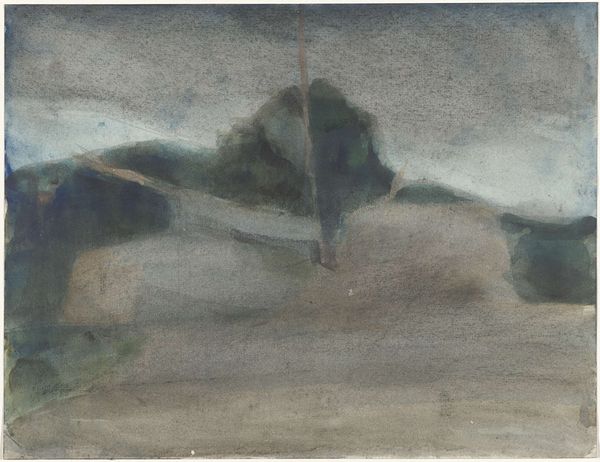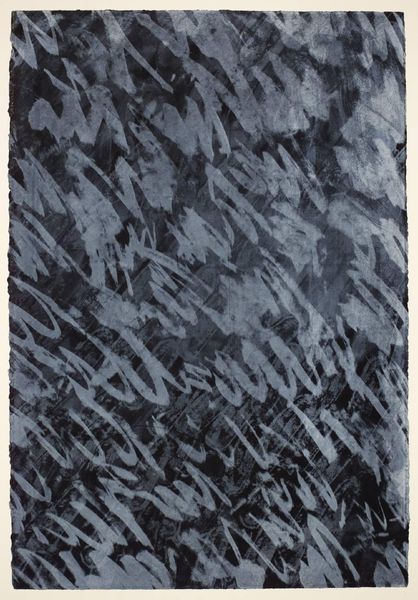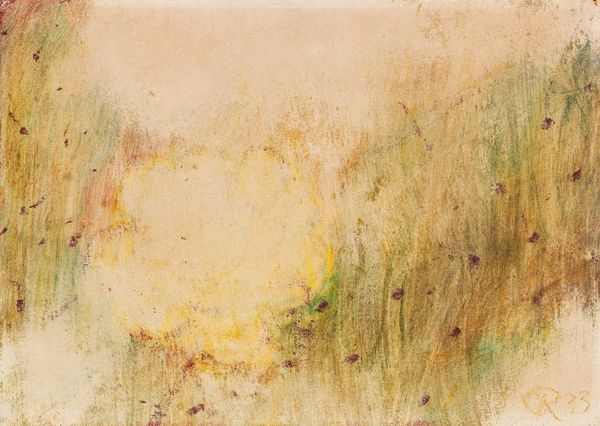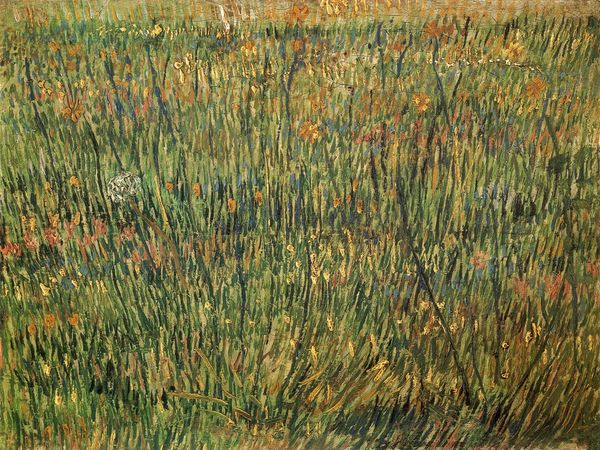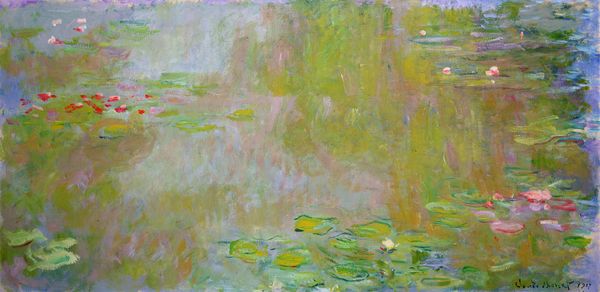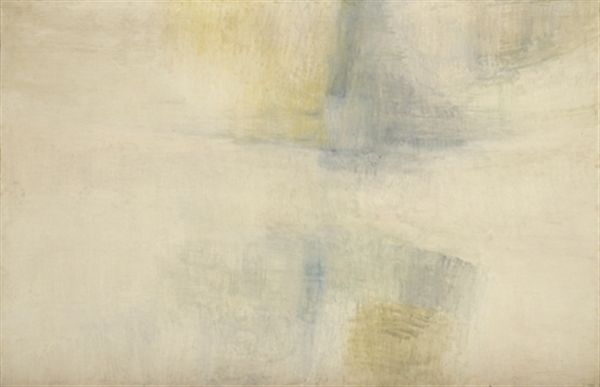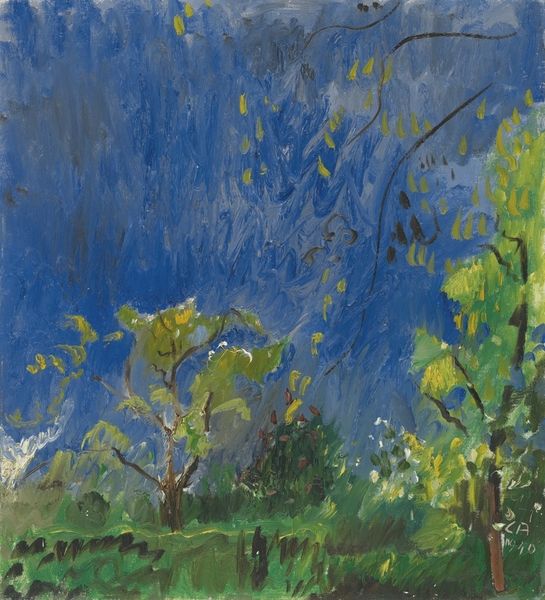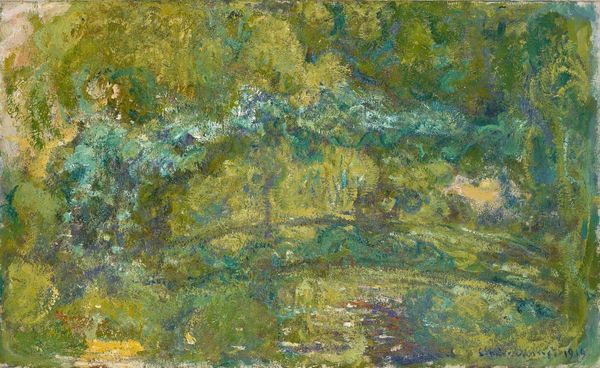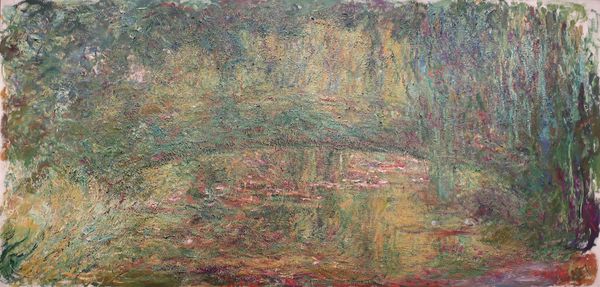
Landscape 1903
0:00
0:00
konstantinosparthenis
National Art Gallery (Alexandros Soutzos Museum), Athens, Greece
Dimensions: 74 x 46 cm
Copyright: Public domain US
Curator: Here we have Konstantinos Parthenis' "Landscape," painted in 1903. It's an oil on canvas and exemplifies his early explorations into impressionism and plein-air painting. Editor: My immediate response is quietude. The almost monochromatic palette lends itself to a meditative stillness; I imagine the scent of rain-soaked fields. Curator: It’s interesting you say that. Considering Parthenis's later spiritual leanings and his engagement with theosophy, we can interpret these landscapes as spaces of inner reflection. How do you view the public’s relationship with these personal spaces in the early 20th century? Editor: It's a bit complex. This work exists at the nexus of sociopolitical pressures shaping ideas around national identity and emerging avant-garde artistic styles that prioritize subjective experience over purely mimetic representation. Landscapes were shifting from simple background to expressions of an ideal state. The very act of taking his easel into nature feels quietly subversive. Curator: The subject also shifts the narrative. The blurred forms, lack of distinct lines; they seem to reject traditional, academic landscapes popular at the time, challenging the visual language used to represent Greece. Editor: Right. The vagueness allows viewers to project their feelings about land. He democratizes the view somehow, presenting the land as something to be known through experience, not simply through ownership. Curator: Looking closer, do you think he captures the transient atmosphere? There's this tension between stillness and the subtle movements within the vegetation. How can Parthenis's imagery inform our understanding of turn-of-the-century views about nature? Editor: For one, It showcases evolving relationships with our environment, emphasizing an experiential interaction over exploitation of resources for socio-economic goals. Maybe such views are also connected with emerging Greek cultural values and attitudes of the period, like folk traditions. Curator: That's well-put. I’ll certainly reflect on that further. Editor: It has been lovely contemplating with you.
Comments
No comments
Be the first to comment and join the conversation on the ultimate creative platform.
